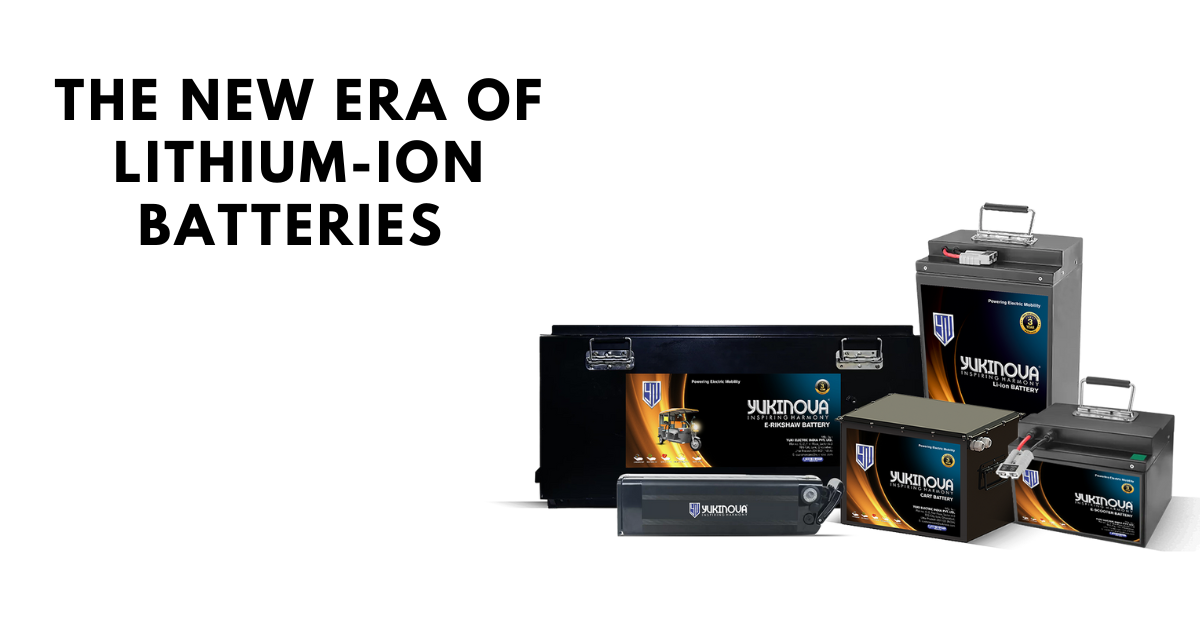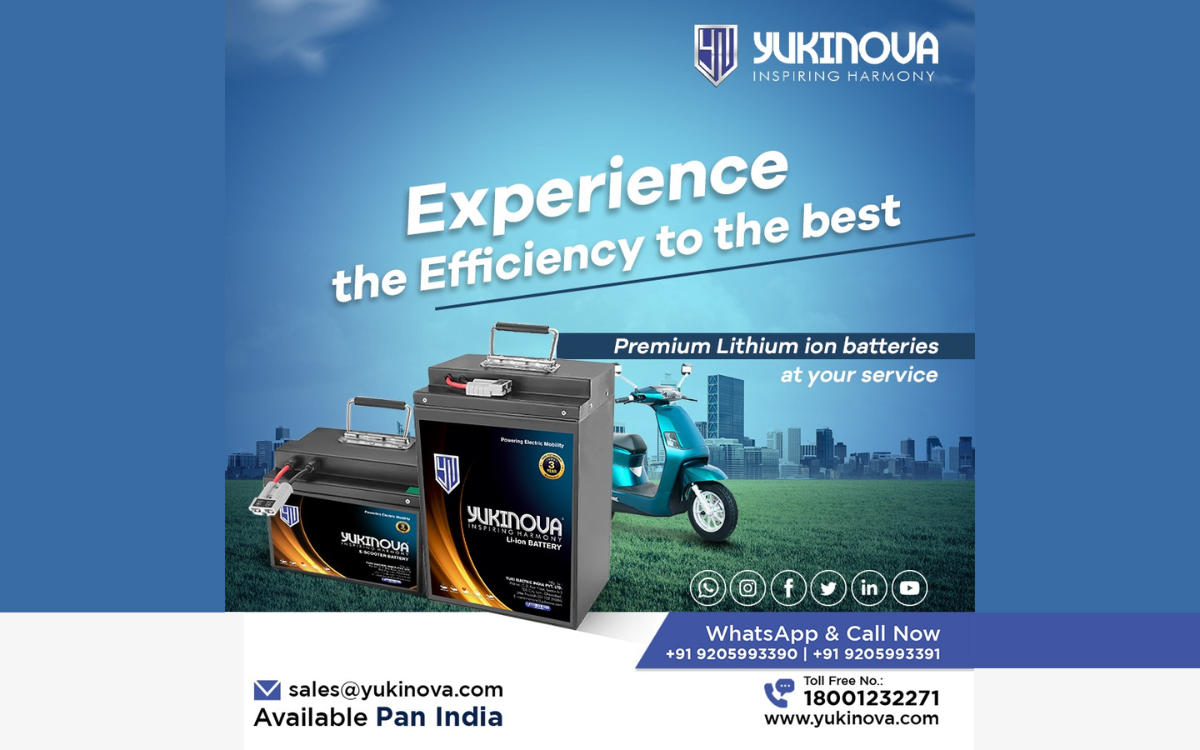INTRODUCTION
Lithium-ion batteries are the leading rechargeable battery technology in use today, powering an array of everyday devices such as mobile phones and electric vehicles. In this comprehensive blog, we will delve into the different types of lithium-ion batteries and explore their various applications like UPS/power backups, mobiles, laptops, energy storage systems, and two-wheeler battery manufacturers or in electric mobility.
Understanding the Inner Workings of Lithium-ion Batteries
Lithium-ion batteries comprise single or multiple lithium-ion cells, each featuring a protective circuit board. Once these cells are installed within a device, along with the protective circuit board, they are collectively referred to as batteries.
The key components of a lithium-ion battery include:
Electrodes: These are the positively and negatively charged ends of the cell, attached to the current collectors.
Anode: The anode composition in a lithium-ion battery is typically made of graphite or other carbon-based materials. Graphite has excellent properties for storing and releasing lithium ions during the battery’s charge and discharge cycles. It helps in maintaining the stability and efficiency of the battery.
Cathode: The cathode composition in a lithium-ion battery typically consists of lithium metal oxide compounds, such as lithium cobalt oxide (LiCoO2), lithium nickel manganese cobalt oxide (LiNiMnCoO2), or lithium iron phosphate (LiFePO4). These compounds help in the efficient storage and release of lithium ions during the battery’s charge and discharge cycles.
Electrolyte: The electrolyte composition in a lithium-ion battery usually consists of a lithium salt, such as lithium hexafluorophosphate (LiPF6), dissolved in an organic solvent, such as ethylene carbonate or dimethyl carbonate. This electrolyte facilitates the movement of lithium ions between the cathode and the anode during the battery’s operation.
Current Collectors: The current collectors in a lithium-ion battery are usually made of metal foils, such as copper for the cathode current collector and aluminum for the anode current collector. These metal foils help in the efficient collection and distribution of electrical current within the battery.
Separator: The separator in a lithium-ion battery is typically made of a porous polymer material. It acts as a physical barrier between the cathode and the anode, preventing direct contact and short circuits while allowing the flow of lithium ions. This helps maintain the battery’s safety and efficiency.
In a lithium-ion battery, lithium ions (Li+) move internally between the cathode and anode, while electrons move in the opposite direction in the external circuit. This migration of ions and electrons is what enables the battery to generate electrical current.
During discharge, the anode releases lithium ions to the cathode, creating a flow of electrons that powers the device. Conversely, during charging, lithium ions are released by the cathode and received by the anode.
Exploring Types of Lithium-ion Batteries
Now that we have a foundational understanding of lithium-ion batteries, let’s delve into the various types and their applications:
1. Lithium Iron Phosphate (LFP) Batteries
LFP batteries employ phosphate as the cathode material and a graphitic carbon electrode as the anode. These batteries are known for their extended life cycle, robust thermal stability, and exceptional electrochemical performance.
Applications: LFP battery cells typically have a nominal voltage of 3.2 volts, making them a popular choice for replacing lead-acid deep-cycle batteries and it is favored by many two-wheeler battery manufacturers.
Benefits: The primary advantages of LFP batteries are their durability, long life cycle, and safety. They often surpass 2,000 cycles and are less affected by depth of discharge compared to lead-acid batteries.
2. Lithium Cobalt Oxide (LCO) Batteries
LCO batteries are characterized by their high specific energy but relatively low specific power. They are less suitable for high-load applications but excel at delivering power consistently over a longer period.
Applications: LCO batteries were once common in small portable electronics like mobile phones, laptops, and cameras. However, concerns about cobalt’s cost and safety have led to its declining popularity.
Benefits: The primary use of LCO batteries is their high specific energy, enabling them to provide power steadily over extended durations.
3. Lithium Manganese Oxide (LMO) Batteries
LMO batteries utilize lithium manganese oxide as the cathode material, creating a three-dimensional structure that enhances ion flow, reduces internal resistance, and improves current handling. These batteries are also known for their thermal stability and safety.
Applications: LMO batteries are commonly found in portable power tools, medical instruments, and certain hybrid and electric vehicles.
Benefits: LMO batteries offer quick charging, high specific power, and superior thermal stability compared to LCO batteries. They can be optimized for either high-load or long-life applications.
4. Lithium Nickel Manganese Cobalt Oxide (NMC) Batteries
NMC batteries combine the strengths of three key elements in the cathode: nickel, manganese, and cobalt. This combination results in stable chemistry with high specific energy.
Applications: NMC batteries are popular in power tools, electric powertrains for e-bikes, scooters, and electric vehicles.
Benefits: NMC batteries offer high energy density, a longer life cycle at a lower cost than cobalt-based batteries, and enhanced thermal stability compared to LCO batteries.
5. Lithium Nickel Cobalt Aluminum Oxide (NCA) Batteries
NCA batteries provide high specific energy with respectable specific power and an extended lifespan, allowing them to deliver substantial current for extended periods.
Applications: NCA batteries are favored in the electric vehicle market.
Benefits: NCA batteries excel in terms of high energy density and longevity.
6. Lithium Titanate (LTO) Batteries
LTO batteries stand out due to their unique anode material, replacing graphite with lithium titanate, while still utilizing LMO or NMC as the cathode chemistry. This results in an exceptionally safe battery with rapid charging capabilities.
Applications: LTO batteries find use in a wide range of applications, including electric vehicles, uninterrupted power supplies, renewable energy storage, solar street lights, telecommunications systems, aerospace, and military equipment.
Benefits: LTO batteries offer benefits such as fast charging, a broad operating temperature range, a long lifespan, and outstanding safety due to their stability.
In conclusion, lithium-ion batteries offer a wide array of advantages, including high energy density, low self-discharge, minimal maintenance requirements, and versatility. If you are seeking reliable lithium-ion batteries for your needs, Yukinova provides the trust and assurance you require and is one of the well-known producers of electric bike battery manufacturers in India. Our high-quality lithium-ion batteries are designed to meet your demands, ensuring a bright and sustainable future.



